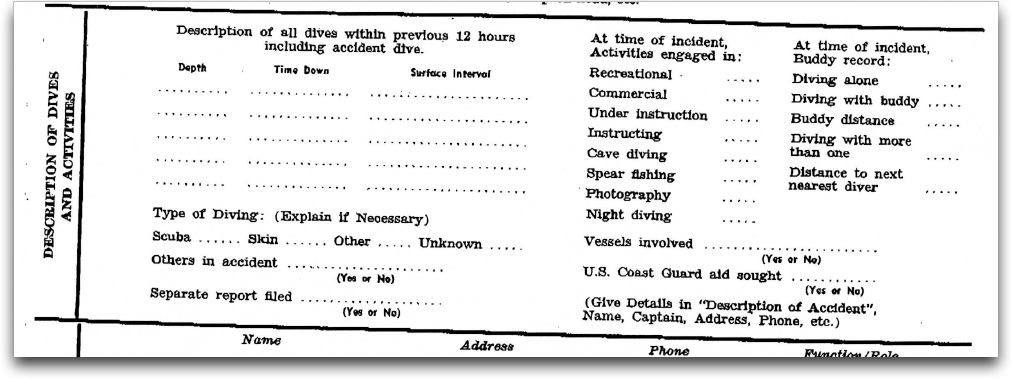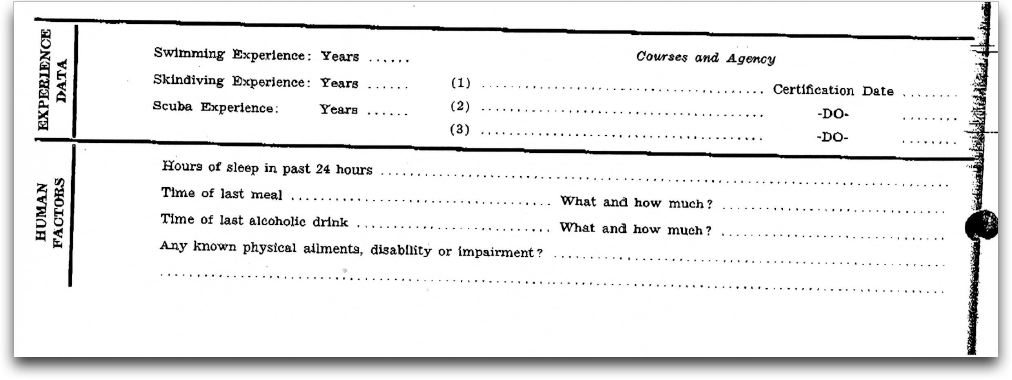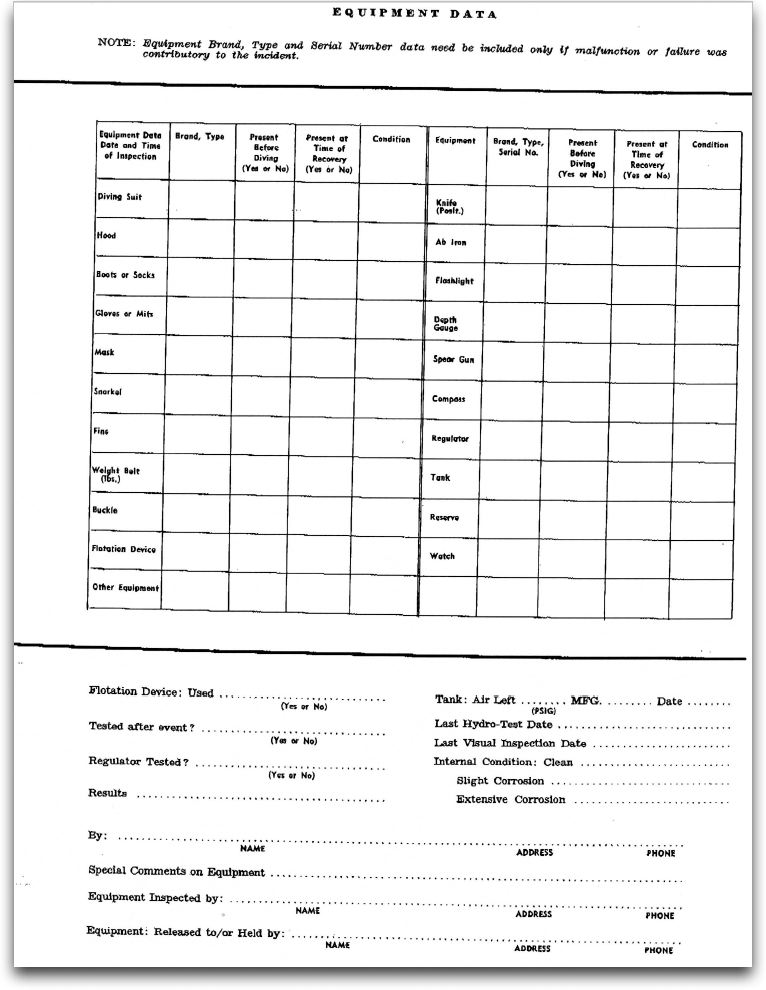and if the DM catered to individual divers, he could only take 1 out at a time,
and if he refused every idiot with a c-card a boat ride to the dive site, he wouldnt have a job,
and if the guy had respected his own limitation he would be ordering pizza too, or maybe he should have paid for a private guided tour, those are available at Divers Down.....
we have standards, and i think they are pretty good ones given the alternative,
how can you police every person that gets off the boat, that is precisely the reason we have standards, the card is enough rope to hang yourself, and I tell each of my students that, I have worked the boats, and seen the people, on vacation and no common sense at all, hungover, havent seen a reg in ten years, set up gear upside down, not in physical shape, antiques not serviced, it goes on and on and on and on,,but you cant police every one of them, whos to say you re any better than this guy in cayman, it just happened, and given the absolute numbers they handle in cayman i am surprised it doesnt happen more, and I think you are blowing smoke and judging the DM, based on some ideal you have in your head, but I dont think you have dealt with tourists on this level, your ideal is great, but i doubt you could uphold your ideal in his situation, and still make a living, everyone agrees the guy had no business at 100', but you cant control what he does, is the kid at the cash register of burger king responsible for the fat guys order, or is it the manager, or is it the guy himself, he knows it can hurt him, and he chose to super size it, and our diver made the choice, he had an alternative to dive with his friends he chose badly, and unfortunately it didnt work out, it sucks, but it happens, and it could happen to you just as easily and quickly as the DM in Cayman, and ANY DIVE PROFESSIONAL SHOULD KNOW THAT TOO. it sucks, but it happens.....dont be so quick to blame, karma is brutal, and it could easily be you next time, it only takes a second ,,,,and again, we dont know what happened,
and if he refused every idiot with a c-card a boat ride to the dive site, he wouldnt have a job,
and if the guy had respected his own limitation he would be ordering pizza too, or maybe he should have paid for a private guided tour, those are available at Divers Down.....
we have standards, and i think they are pretty good ones given the alternative,
how can you police every person that gets off the boat, that is precisely the reason we have standards, the card is enough rope to hang yourself, and I tell each of my students that, I have worked the boats, and seen the people, on vacation and no common sense at all, hungover, havent seen a reg in ten years, set up gear upside down, not in physical shape, antiques not serviced, it goes on and on and on and on,,but you cant police every one of them, whos to say you re any better than this guy in cayman, it just happened, and given the absolute numbers they handle in cayman i am surprised it doesnt happen more, and I think you are blowing smoke and judging the DM, based on some ideal you have in your head, but I dont think you have dealt with tourists on this level, your ideal is great, but i doubt you could uphold your ideal in his situation, and still make a living, everyone agrees the guy had no business at 100', but you cant control what he does, is the kid at the cash register of burger king responsible for the fat guys order, or is it the manager, or is it the guy himself, he knows it can hurt him, and he chose to super size it, and our diver made the choice, he had an alternative to dive with his friends he chose badly, and unfortunately it didnt work out, it sucks, but it happens, and it could happen to you just as easily and quickly as the DM in Cayman, and ANY DIVE PROFESSIONAL SHOULD KNOW THAT TOO. it sucks, but it happens.....dont be so quick to blame, karma is brutal, and it could easily be you next time, it only takes a second ,,,,and again, we dont know what happened,




 They need to have a sign posted outlining what new divers should expect from DG and DM, and what the specific difference is. A newer, learning diver with less than 50 dives might be confused by all this? Clarity would help the newer diver and help prevent any more fatalities.
They need to have a sign posted outlining what new divers should expect from DG and DM, and what the specific difference is. A newer, learning diver with less than 50 dives might be confused by all this? Clarity would help the newer diver and help prevent any more fatalities.








